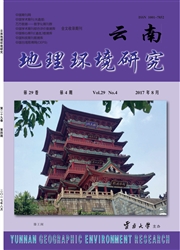

 中文摘要:
中文摘要:
地方感强调地方本身具有的特质及人与地之间的情感连结关系,是近年来国外环境心理学和游憩地理学的热点论题。以世界遗产地苏州古典园林为例,基于旅游涉入、旅游吸引力、旅游功能、地方感、遗产保护态度与遗产保护行为6个潜变量,构建地方感结构关系模型,通过设计量表并回收909份有效调查样本,运用SPSS、Amos软件及验证性因子分析方法,探讨了旅游者地方感的影响关系路径及运行机理。研究结果表明:①由地方感前因影响导入机制与后果效应输出机制构成的“导入一输出”系统机制的运行过程与结果是苏州古典园林旅游者地方感的影响关系机理;②地方感前因变量旅游涉入、旅游吸引力、旅游功能均对地方感有显著的正向影响,同时地方感的形成对遗产保护态度及遗产保护行为也具有重要的影响效应;③旅游吸引力对地方感的影响最小(0.341),旅游涉入对地方感的影响最小(O.252);④地方感的形成对旅游者的遗产保护态度及遗产保护行为均具有重要的影响效应,其对遗产保护行为的影响(0.467)比对保护态度的影响(0.420)更加显著。对地方感前因变量与后果效应进行整合分析,探讨地方感影响关系机理,以期为我国遗产地的遗产保护与旅游发展的协调互利提供借鉴及指明方向。
 英文摘要:
英文摘要:
Sense of place emphasizes local characteristics and emotional links between people and the place. By building structural relationship model, the paper uses confirmatory factor analysis methods to analyze influence relationship and operational mechanism of tourists in the world heritage site, taking classical gardens of Suzhou as a case. The results are shown as follows. (1) The antecedent mechanism and consequences influence mechanism constitutes the "Import-Export" system mechanism, operation process and result is influence relationship mechanism of tourists' sense of place in classical gardens. (2) Tourism involvement, tourism function and tourist attraction are antecedent variables of sense of place, which has a significant impact on tourists' sense of place, among them, tourism function has the greatest influence (0.420), and the influence of tourism function is the least (0.341). (3) The formation of sense of place has an important effect on tourists' attitudes and behavior of heritage protection, especially on behavior of heritage protection rather than on attitudes of heritage protection. The meta-analysis of antecedent variables and consequences of sense of place and discussion of influence relationship mechanism has important reference meanings; besides, the research points out new direction for heritage conservation and tourism development of China.
 同期刊论文项目
同期刊论文项目
 同项目期刊论文
同项目期刊论文
 期刊信息
期刊信息
